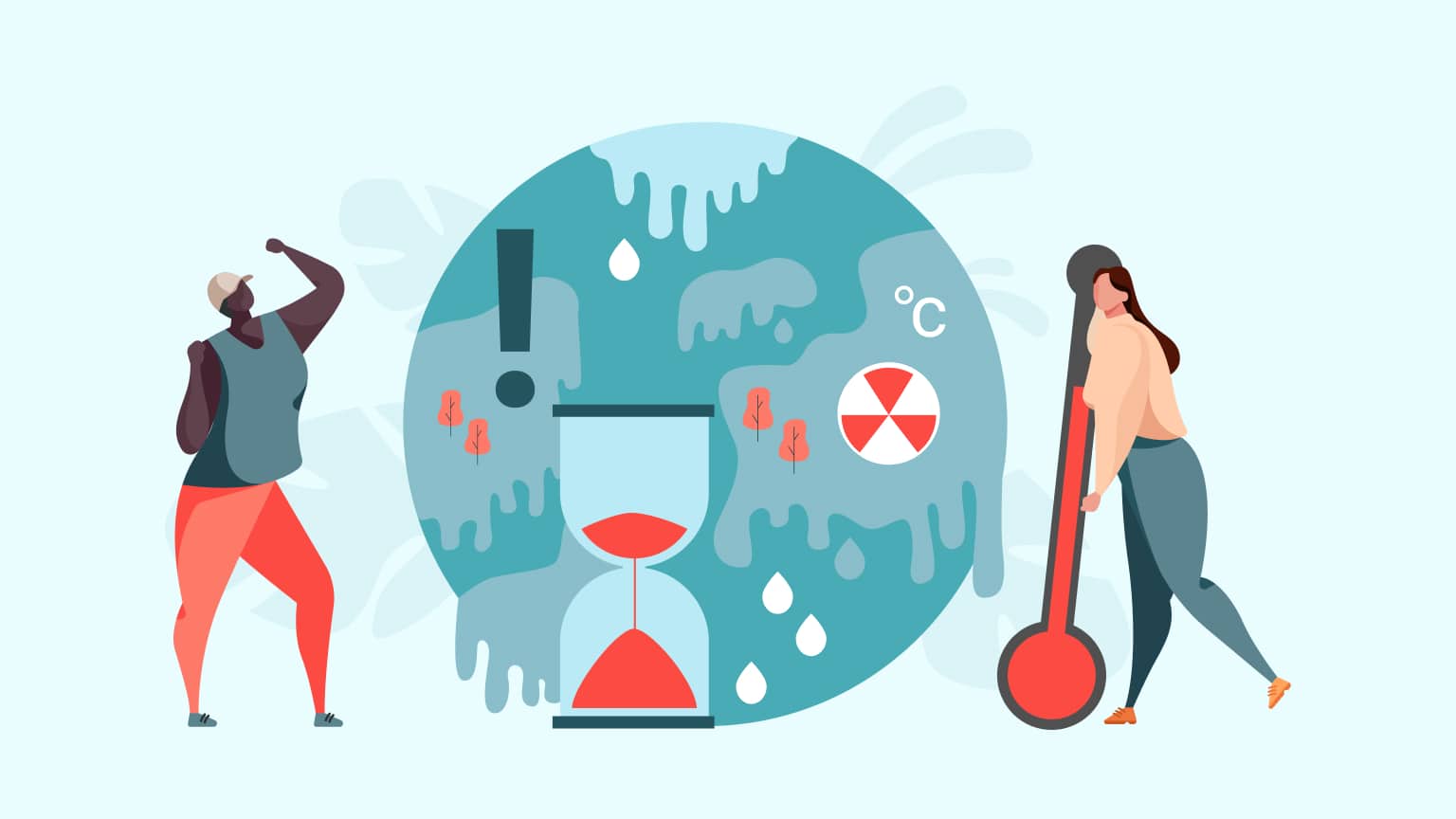Heat waves, polar cold, melting ice, storms, floods, intense pollution, loss of biodiversity… Whether in the traditional media or on social platforms, the message is the same: our planet doesn’t seem to be in the best of shape. Is this enough to generate stress and seriously disturb our mental well-being? If you feel that way, don’t panic, you are not alone in worrying about the planet from time to time.
For several years now, this feeling has a name: eco-anxiety. A contraction of ecology and anxiety. The American Psychology Association (APA) even describes it very precisely as “the fear of environmental doom’’.
It first appeared in the United States more than 30 years ago, in an article from the Washington Post. It is also now very present in the political debate. The recent reports of the IPCC (Intergovernmental Panel on Climate Change) are obviously not unrelated.
An impact on mental well-being
The younger generation would be the most concerned about climate change. As a 2021 study of 10,000 young people aged 16 to 25 from ten different countries reveals, 45% of the young respondents actually consider “the future scary” and are affected by eco-anxiety on a daily basis.
“Eco-anxiety can impact our mental well-being in many ways,” says Soesja Vogels, psychologist at OpenUp. “It can, for example, influence the quality of our sleep, our mood or affect our relationships because not everyone shares the same environmental concerns.’’
And when you feel anxious, you often go into action mode and look for a solution, with the intention of regaining some control to improve the situation.
‘’This is difficult to do in the context of climate change. And if you can’t solve the problem you’re facing, you can feel even more stress and anxiety and even a sense of failure”, explains Soesja.
However, as stated by Alice Desbiolles, a public health physician, eco-anxiety can affect absolutely anyone and go even further by leading to “a whole panel of emotions that range from sadness to anger through feelings of helplessness or guilt, beyond just worry or fear.”
How to deal with eco-anxiety?
Are you worried about the environment? Are you overwhelmed by a sense of fatalism and are you struggling to soothe your anxiety? Try applying these four principles to see the world in a better way:
1. Do not underestimate your emotions
Wanting to change or downplay your emotions? Not a good idea! Here, it’s more a matter of taming the stress they can cause you, bit by bit, to make them more tolerable. Have you ever heard of mindfulness techniques? Very useful in case of anxiety or depression, they will help you to accept what you are feeling and overcome it. Mindfulness makes you mentally more resilient and allows you to better control your emotions. It also helps you to accept your feelings and thoughts, through awareness and intention. Try this exercise to release stress.
💡 You might also find this interesting: How to break a cycle of worrying?
2. Connect with like-minded people
Different emotions and concerns can sometimes lead to misunderstanding. Even with close friends and family. So why not share your fears with people who are also concerned about the health of the planet? Don’t be alone! Breaking the isolation, talking about your concerns and feeling understood will already put you on the road to well-being.
3. Stay in touch with nature
Simply getting some fresh air can have a therapeutic effect. Research has proven it. A walk in nature (without a smartphone), meditation in the open air, gardening…The choice is yours! The key here is to be connected to what touches you: nature.
4. Take action
Anxiety is often linked to uncertainty, to a loss of control. But it can also give you the motivation to take action and do something concrete. Here again, there are many options: support an environmental association, adopt a globally eco-responsible attitude by consuming differently (e.g. no more plastic in the supermarket, eating local and seasonal food, switching off the lights when you leave the house), use soft mobility and so on. Even if your actions seem small, by making a concrete contribution to change, you minimise the sense of powerlessness that fuels the feeling of eco-anxiety.
Positive feelings, too
A remarkable (and perhaps paradoxical) fact to conclude: eco-anxiety can also motivate you and generate positive feelings. The need for immediate action, determination, and pride in adopting a pro-environmental attitude are all factors that push you to make a difference and contribute to a better world.
“Turn your stress into something positive. Be aware of what you can control and work on it. Feeling that you are making a positive contribution, in whatever way you can, is motivating and energising,” concludes Soesja.
So what step – big or small – will you take today? Don’t forget: should you need it, you can always call on a psychologist who will guide you on the road to mental well-being.





